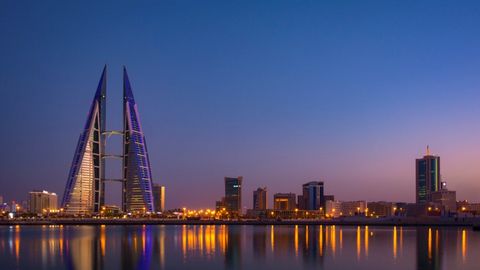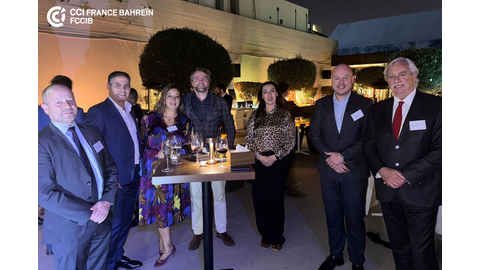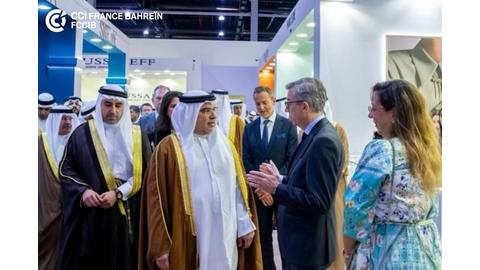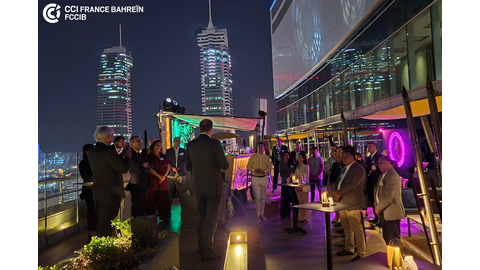Bahrain placed among top 10 in business fundamentals rankings

Bahrain is placed among the top 10 in a ranking of emerging markets offering the best business climate, outperforming economic powerhouses like China, India and Brazil.
The kingdom along with its GCC peers dominates the business fundamentals rankings – a measure of how easy it is to do business in a particular market from a regulatory, operational and commercial perspective – in the 14th annual Agility Emerging Markets Logistics Index.
UAE ranked No. 3 behind China and India in the 50-country Index. Saudi Arabia was No. 6. Both countries were in the top 10 in all four Index categories: domestic logistics, international logistics, business fundamentals and digital readiness.
For best business climate, UAE (1), Qatar (2), Saudi Arabia (3), Oman (5), Bahrain (6) and Kuwait (11) were clustered at the top.
Among the six GCC economies, Kuwait (No. 15 overall) did most to improve its competitiveness, gaining ground in every category.
In digital readiness, Oman, up five spots to No. 10, and Bahrain, up six to No. 16, made the biggest strides among GCC countries.
Outside of the GCC, there was significant volatility in the rankings.
Conflict, sanctions, political tumult, economic missteps and continued Covid-19 fallout damaged the competitiveness of Ukraine, Iran, Russia, Colombia, Paraguay and others.
In the Middle East and North Africa, overall rankings were: UAE (3); Saudi Arabia (6); Qatar (7); Turkey (11); Oman (12); Bahrain (14); Kuwait (15); Jordan (16); Morocco (20); Egypt (21); Tunisia (32); Lebanon (33); Iran (36); Algeria (41); Libya (50).
Ranking countries for overall competitiveness based on factors that make them attractive to logistics providers, freight forwarders, air and ocean carriers, distributors and investors, the index is compiled by analysis and research firm Transport Intelligence (Ti) for Kuwait-based Agility, which owns and operates businesses that include the world’s largest aviation services company.
The index and a survey of 750 global logistics industry executives comprise Agility’s 14th annual snapshot of industry sentiment and ranking of the world’s leading emerging markets.
In the survey, industry executives were asked to name the most important drivers of economic diversification for GCC countries, all of which are trying to reduce dependence on oil and gas by accelerating private-sector growth.
Respondents identified the key factors as tech development and innovation; small business environment; infrastructure development; regional and global integration; business conditions for multinationals; a skilled labour force; ending energy subsidies; and creating career opportunities for women.
More than half (55 per cent) say they will be more aggressive in emerging markets expansion and investing or leave their existing plans untouched despite fears of recession.
There is an even split between companies planning to reduce their reliance on Chinese sourcing and those planning to expand in China. But only 11pc of respondents say their company’s manufacturing footprint is the same as before Covid-19.
As many as 97pc indicated that their businesses have been hurt by higher costs or other supply chain challenges as a result of the Russia-Ukraine conflict.
The survey also polled stakeholders on their net-zero commitment, finding that 53pc of logistics executives say their companies have committed to net-zero emissions, and another 6.1pc say their businesses have already achieved net-zero.
Climate change is a concern their businesses must plan for, was the view of half the respondents while another 18pc said it was already affecting them.
John Manners-Bell, chief executive of Ti, said: “It is not possible to overstate the challenges faced by emerging markets countries in the past couple of years. Geopolitical tensions have combined with financial uncertainty and the lingering effects of the pandemic to create an ever more complex business and investment environment. The role that the Agility Emerging Market Logistics Index plays in providing insight into this volatile, uncertain environment landscape is more critical than ever.”


